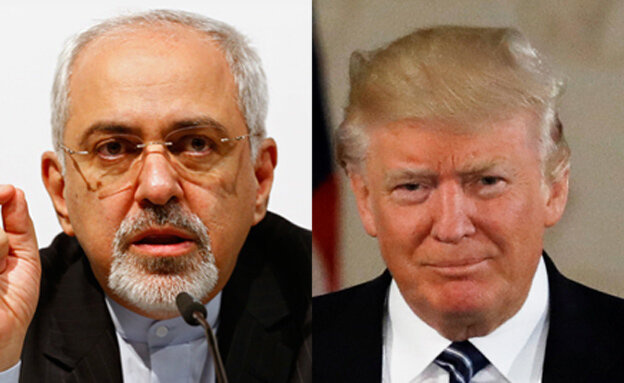Zarif and Trump: A Chemistry that Works

In the aftermath of his recent appearance at the Davos World Forum, Iran's Vice-President Mohammad Javad Zarif has been subjected to virulent criticisms in aspects of Iran's media with some commentators accusing him of being pro-American and or soft vis-a-vis the United States. Questioning Zarif's appointment by President Pezeshkian, his hardline critics lament the prospect of Zarif's involvement in a future nuclear negotiation with the West, in light of Trump's stated preference for a new nuclear deal with Iran.
But such criticisms of Zarif are misplaced and ignore the crucial role that Zarif can play in Iran's coming diplomacy toward the Trump administration, in light of Zarif's skillful diplomacy and experience. Such heated debates within Iran around Zarif might result in his exclusion from the new nuclear negotiations, which would be a mistake and contrary to Iran's interests, for the following reasons.
First, Zarif's involvement would be positively viewed by President Trump, who in the past has expressed an interest in meeting Zarif. The 'transactional' Trump is inclined toward 'personal diplomacy' where emotional likes and dislikes of individuals plays a key role and Zarif is precisely the kind of Iranian counterpart that Trump would find pleasant and easy to work with.
Second, Zarif is already a known figure in the US media and he would be able to communicate Iran's view points in the US media better than any other Iranian diplomat, in light of his command of English language.
Third, Zarif led the arduous negotiations for Iran in the 2015 nuclear deal, along with the now foreign minister Abbas Araghchi, and his thorough familiarity with the complex details of the subject matter represents yet another excellent reason for his inclusion in a new negotiation team.
Fourth, Zarif is also keenly aware of the lessons learned from the previous rounds of (both bilateral and multilateral) negotiations and can apply those precious lessons, whereas another diplomat fulfilling this role might not be so firmly rooted in a living history of nuclear negotiations. One of those lessons pertains to the small size of Iran's negotiation team, compared with the US, and Iran definitely needs a much bigger team this time around. Another lesson is with respect to giving away too many concessions in the JCPOA, i.e., a sign of Zarif's shortcomings as a negotiator, which he ought to be guarded against now that Iran's program has matured to the level of a latent nuclear state in line with the country's national security needs, thus precluding a simple return to the status quo ante.
Fifth, another reason why Zarif should not be relegated to the background and or excluded from a new round of negotiations with the US (and its western allies) is that he is also cognizant of the potential spoiler role by Russia and even China, since neither country is really interested in seeing a breakthrough in Iran's stalemated relations with the West. Zarif in the past has been critical of Russia's role in occasionally throwing a wrench in the on-going JCPOA negotiations and his healthy skepticism toward Russia is a net plus.
In conclusion, between Trump and Zarif there is a chemistry that works and it should be put into practice for a 'win-win' resolution.

